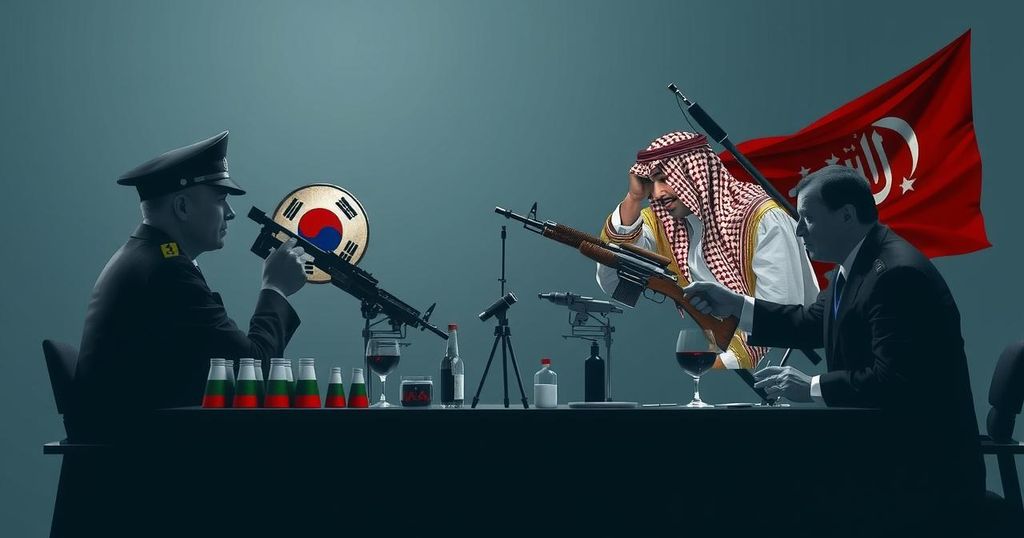Russia’s Recruitment of Houthi Rebels: Implications for the Ukraine Conflict
The Russia-Ukraine conflict reveals both nations struggling with troop recruitment, leading Russia to enlist foreign fighters like North Koreans and Houthi rebels from Yemen. Promised jobs, many Yemenis faced forced conscription into the Russian military, reflecting broader geopolitical manipulation. The situation illustrates the intersection of local conflicts and international power struggles, with significant implications for both the region and global stability.
In the ongoing conflict between Russia and Ukraine, both nations face challenges in troop recruitment to replace battlefield losses. In light of these difficulties, Russia has sought assistance from foreign fighters, including North Korean soldiers and now Houthi rebels from Yemen. Reports indicate that hundreds of Houthis, deceived by promises of lucrative jobs, have joined Russian forces to bolster military strength against Ukraine. As tensions escalate following Western nations’ support of Ukraine with long-range weaponry, the involvement of Yemeni fighters reflects a troubling trend in international conflict dynamics. The Houthis, having previously seized control of Yemen’s capital, have gained substantial backing from Iran in their prolonged struggle against a Saudi-led coalition. Meanwhile, Russia’s recruitment efforts reveal its attempts to secure military support from increasingly marginalized groups.
Parallel to this development is the troubling revelation from U.S. diplomats regarding Russia’s engagement with the Houthis, which reflects broader strategic interests in the Middle East. Recruitment allegedly traces back to July, with contracts implicating a company associated with Houthi leadership. Young Yemeni men reportedly faced coercion after being promised roles in engineering or security, only to find themselves at the forefront of a foreign military conflict. These developments underline the complex interplay of geopolitics, armed conflict, and the exploitation of vulnerable populations in warfare.
The Russia-Ukraine war has initiated a global geopolitical reshaping, wherein nations involved seek unconventional methods to strengthen their military capabilities. With both Russia and Ukraine burdened by high casualty rates, the struggle for troop replacement has led to an increase in foreign fighter recruitment. This desperate tactic has seen Russia engage foreign combatants, notably North Koreans and Houthi rebels, amid an intensified conflict marked by external funding and support schemes. The situation is further complicated by regional rivalries, particularly in the Middle East, highlighting the unfolding geopolitical ramifications of this war.
In conclusion, the recruitment of Houthi rebels by Russia to augment its military efforts in Ukraine signifies a notable shift in the dynamics of the conflict. The deceptive promises made to these fighters point to the desperation felt by Russia amidst ongoing losses. Meanwhile, the Houthis’ involvement deepens their entanglement in the broader geopolitical landscape, reflecting both the impact of local conflicts on international relations and the exploitation of vulnerable populations within war zones. As the conflict intensifies, the potential for further escalation and broader regional implications remains concerning.
Original Source: www.india.com








Post Comment